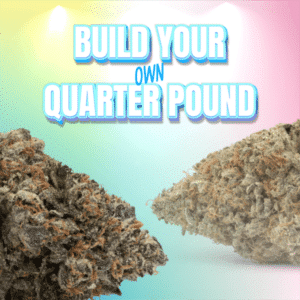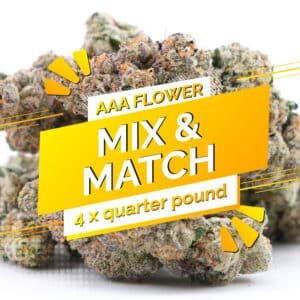Product
Categories
-
Sale!0 out of 5
QP of Weed
0 out of 5$600.00Original price was: $600.00.$500.00Current price is: $500.00. Select options -
Sale!0 out of 5
Half Pound of Weed
0 out of 5$900.00Original price was: $900.00.$800.00Current price is: $800.00. Select options -
Sale!0 out of 5
Pound of Weed
0 out of 5$1,500.00Original price was: $1,500.00.$1,300.00Current price is: $1,300.00. Select options
CBD
In recent years, CBD has gone from a fringe wellness fad to a mainstream health phenomenon. It’s being used by millions around the world to manage stress, sleep better, reduce pain, and support overall wellness.
But what exactly is CBD? How does it work? And is it really as safe and effective as people claim?
Let’s explore everything you need to know about CBD in this complete, expert-backed guide.
The Complete Guide to CBD: Benefits, Uses, and Science Explained
In recent years, CBD has gone from a fringe wellness fad to a mainstream health phenomenon. It’s being used by millions around the world to manage stress, sleep better, reduce pain, and support overall wellness.
But what exactly is CBD? How does it work? And is it really as safe and effective as people claim?
Let’s explore everything you need to know about CBD in this complete, expert-backed guide.
What Is CBD?
Definition and Origin
CBD, or cannabidiol, is a naturally occurring compound found in the cannabis plant—specifically in hemp. Unlike THC, CBD is non-psychoactive, meaning it doesn’t make you feel “high.”
Difference Between CBD and THC
THC (tetrahydrocannabinol) is the main psychoactive compound in cannabis. CBD, on the other hand, provides many of the plant’s therapeutic benefits without the intoxicating effects.
Brief History of CBD Use
Though modern research has surged, humans have used cannabis extracts for centuries. CBD was isolated in 1940, and today it’s used in everything from oils to skincare.
How CBD Works in the Body
The Endocannabinoid System (ECS)
Your body has a complex system called the endocannabinoid system (ECS), which helps regulate mood, pain, appetite, sleep, and immune responses.
CBD’s Interaction with Receptors
CBD interacts with ECS receptors (like CB1 and CB2) to help the body maintain balance and restore internal stability—a state called homeostasis.
Homeostasis and Regulation
By supporting the ECS, CBD promotes a balanced state of well-being. That’s why people use it for such a wide range of health concerns.
Different Types of CBD
Full-Spectrum
Contains all cannabinoids found in hemp, including trace THC (<0.3%). Offers an “entourage effect,” where all compounds work together.
Broad-Spectrum
Same as full-spectrum but with THC removed. Ideal for those wanting multiple cannabinoids without THC.
Isolate
Pure CBD with no other plant compounds. Best for beginners or those sensitive to other cannabinoids.
Benefits of Using CBD
Stress and Anxiety Relief
CBD’s calming properties can reduce feelings of stress and anxiety by acting on serotonin receptors in the brain.
Pain and Inflammation
CBD’s anti-inflammatory effects make it a popular choice for chronic pain, arthritis, and muscle recovery.
Sleep Support
Many users report falling asleep faster and waking up more refreshed when using CBD at night.
Epilepsy and Neurological Conditions
CBD is FDA-approved in the drug Epidiolex to treat rare forms of epilepsy, showcasing its potential for neurological support.
Common Forms of CBD Products
CBD Oils and Tinctures
These are among the most popular forms. You take them sublingually (under the tongue) for quick absorption. They’re ideal for precise dosing and fast-acting relief.
CBD Capsules
Capsules are pre-measured, tasteless, and easy to swallow. They offer long-lasting effects but take longer to kick in as they go through the digestive system.
CBD Edibles
From gummies to chocolates, edibles make taking CBD fun and delicious. They’re discreet and offer extended-release effects but vary in potency and onset time.
CBD Topicals
These include creams, balms, and lotions applied directly to the skin. They’re great for localized pain, inflammation, and skin conditions like eczema or acne.
CBD Vapes
Vaping offers the fastest absorption, making it useful for immediate relief. However, there are health risks associated with vaping, and it may not be suitable for everyone.
How to Choose the Right CBD Product
Consider Your Health Goals
Are you seeking relief from anxiety, sleep issues, or chronic pain? Each product type delivers CBD differently and may suit specific conditions better.
Potency and Dosage
Check how much CBD is in each serving. Beginners should start with low doses (10–25mg) and increase gradually.
Read Labels and Certificates
Always choose products with transparent labeling and third-party lab tests (Certificates of Analysis). These reports verify CBD content and screen for contaminants.
Is CBD Legal?
United States Laws
CBD derived from hemp (with less than 0.3% THC) is federally legal thanks to the 2018 Farm Bill. However, individual state laws may vary—so check your local regulations.
International Regulations
CBD is legal in countries like Canada, the UK, and parts of the EU. In others, like some Asian or Middle Eastern countries, it may be restricted or banned.
TSA and Travel Guidelines
Traveling with CBD is allowed within most U.S. states, but you should carry documentation and check the rules of your destination if flying internationally.
Is CBD Safe?
Side Effects and Warnings
CBD is generally well-tolerated. Potential side effects include dry mouth, dizziness, fatigue, and changes in appetite. These are usually mild and temporary.
Drug Interactions
CBD can interact with medications like blood thinners, antiepileptics, and antidepressants. Always consult a healthcare provider before using CBD if you’re on prescriptions.
Use in Children, Seniors, and Pets
Children should only use CBD under medical supervision (e.g., for epilepsy). Seniors and pets can benefit from CBD, but dosing should be cautious and guided by a professional.
How to Use CBD Correctly
Dosage Tips for Beginners
Start low and go slow. Begin with 10–15mg per day and increase every few days if needed. Everyone’s body responds differently.
When to Take CBD
Morning doses can enhance focus and calm, while nighttime doses may help with sleep. Adjust based on your goals and lifestyle.
How Long It Takes to Work
Oils and vapes act within minutes. Edibles and capsules can take 30 minutes to 2 hours. Consistency is key—benefits often build up over time.
CBD and Drug Tests
Will It Show Up?
Most drug tests check for THC, not CBD. However, full-spectrum CBD may contain trace THC that could trigger a positive result.
How to Avoid Failing a Test
Use THC-free products (broad-spectrum or isolate) and verify lab results to ensure there’s no THC in the product.
Choosing THC-Free Products
Look for “0.0% THC” labels and confirm through third-party lab testing.
CBD for Specific Conditions
Anxiety and Depression
CBD may reduce symptoms by regulating mood-related receptors. It offers a natural alternative for mild to moderate anxiety or depression.
Chronic Pain and Arthritis
By reducing inflammation and affecting pain perception, CBD helps people with joint pain, fibromyalgia, and back pain.
Sleep Disorders
CBD helps calm the nervous system, making it easier to fall and stay asleep. Some formulas even include melatonin for added effect.
Skin Conditions (Eczema, Acne)
CBD’s anti-inflammatory and antibacterial properties can soothe irritated skin and reduce breakouts when applied topically.
Misconceptions and Myths About CBD
CBD Gets You High?
No. CBD is non-psychoactive. Only THC can cause a high.
All CBD Is the Same?
Not at all. The source, extraction method, and formula all impact effectiveness and safety. Quality matters.
Faster Is Always Better?
Not necessarily. While vaping acts fast, longer-lasting options like capsules or edibles may be more beneficial for steady relief.
How to Store CBD Products Properly
Temperature and Light
Store CBD in a cool, dark place. Avoid heat and sunlight, which can degrade its potency.
Shelf Life and Expiration
CBD products usually last 12–24 months. Always check the expiration date, and discard if the smell, color, or texture changes.
The Future of CBD
Ongoing Research
Studies are underway to explore CBD’s role in treating Alzheimer’s, cancer, addiction, and more. It’s a promising field with lots to discover.
Market Trends
CBD is evolving—from enhanced delivery systems to personalized formulations. Expect more advanced, tailored products in the near future.
Regulatory Evolution
As research grows and public acceptance increases, clearer global regulations and medical uses are expected to follow.
FAQs About CBD
1. Can CBD help with mental health?
Yes, many users find relief from anxiety, depression, and PTSD. However, consult your doctor for a treatment plan.
2. Is it safe to drive after taking CBD?
CBD doesn’t impair cognitive function, but always test your reaction first, especially with higher doses.
3. Can I overdose on CBD?
CBD is non-toxic and doesn’t cause fatal overdoses. Still, high doses may lead to discomfort like nausea or drowsiness.
4. How do I know if CBD is working?
Track your symptoms. Relief might be subtle at first but grows over days or weeks with consistent use.
5. Should I take CBD on an empty stomach?
It’s safe, but taking it with food—especially fat—can increase absorption and effectiveness.
6. Does CBD interact with alcohol or caffeine?
CBD may amplify alcohol’s sedative effects. It can complement caffeine for a calm energy boost but monitor your response.
Conclusion
CBD is a powerful wellness tool with potential benefits ranging from stress relief to chronic pain support. Backed by science and used globally, it’s becoming a go-to supplement for natural health solutions.
By choosing quality products, starting with the right dose, and using it consistently, CBD can be a life-changing addition to your daily routine.






